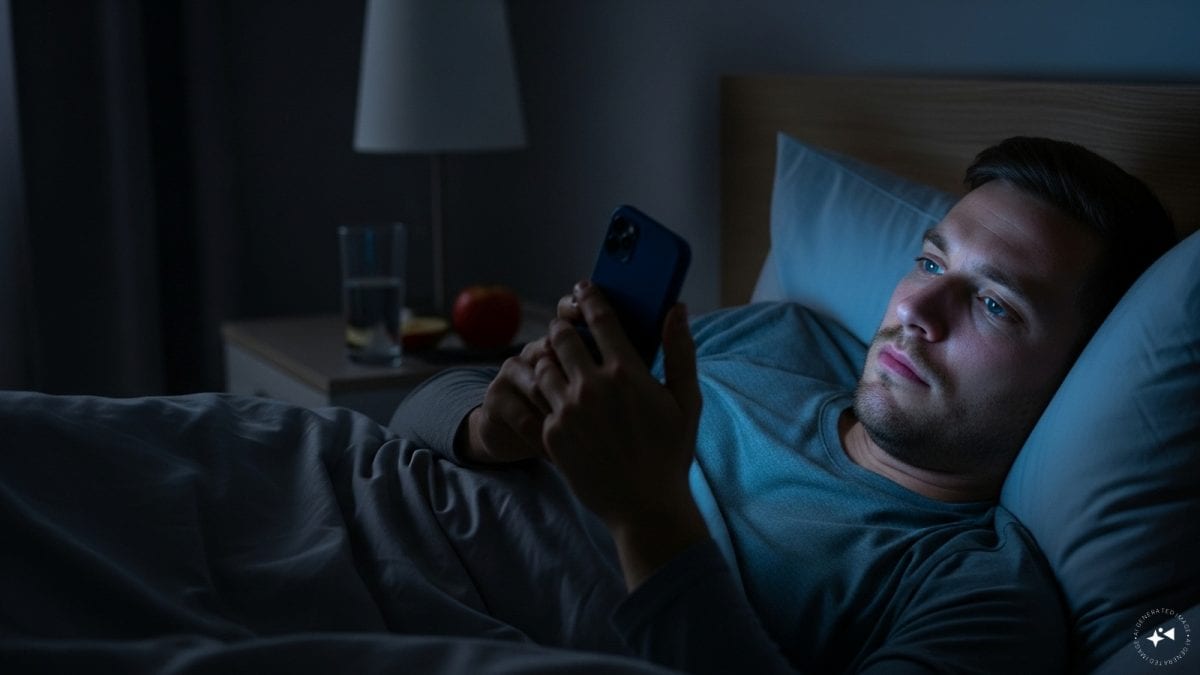Last Updated:
Poor sleep increases stress and leads to digital distraction, while late-night screen usage disrupts sleep. When this cycle continues unchecked, it increases mental fatigue.

Chronic sleep loss affects judgment, focus, and emotional regulation.
In a world where we celebrate productivity, constant connectivity, and multitasking, brain health is quietly under siege. The biggest threats aren’t rare neurological diseases or accidents; they are everyday habits we dismiss as harmless. From staying up late to answer one more email, to scrolling endlessly through social media, to brushing off chronic stress as part of modern life, these small compromises add up. Over time, they can corrode memory, focus, and emotional balance, leaving the brain fatigued and fragile.
“Brain health is rapidly becoming a major public health concern, influenced not just by genetics or ageing but also by the pressures of our modern lifestyle. Among the most significant and often underestimated factors are sleep deprivation, chronic stress, and excessive screen use,” explained Dr B.G. Girishchandra, Medical Director and Senior Consultant – Adult Psychiatrist, Maarga Mind Care, Bengaluru.
Sleep: The Brain’s Reset Button
Sleep is far more than downtime. It is an active repair cycle. “Sleep is not relaxing but a vital process during which the brain resets its own chemistry, solidifies memory, and cleanses itself of toxins,” said Dr. Neha Pandita, Consultant Neurology, Fortis Hospital, Okhla. She added that chronic sleep loss compromises judgment, focus, and emotional regulation, and has been linked to Alzheimer’s, depression, and anxiety.
Dr. Chandra highlighted an alarming reality: “Surveys across Indian metros, including Bengaluru, reveal that many working adults average fewer than six hours of sleep per night, which is well below the recommended 7–8 hours.” Over time, this sleep deficit chips away at concentration, mood, and cognitive performance, creating fertile ground for decline.
Stress: The Silent Saboteur
Stress has been normalised in high-speed lifestyles, but the brain pays the price. “Long-term stress dumps cortisol into the brain for decades and destroys the hippocampus – the learning and memory switch,” warned Dr. Pandita. This chronic overload also disrupts serotonin and dopamine, the brain’s mood and focus regulators, leaving people vulnerable to anxiety, depression, and premature cognitive ageing.
Dr. Chandra emphasised the systemic angle: “Addressing this requires not just personal resilience but systemic solutions, such as workplace reforms alongside individual practices like mindfulness, yoga, and structured relaxation routines.”
Screens: When Digital Becomes Drain
Technology is indispensable, but digital overexposure strains the brain. “The average individual spends more than seven hours daily in front of screens. Long-term digital exposure disperses focus, overburdens the visual cortex, and takes control of our everyday thinking,” noted Dr. Pandita. The dopamine bursts from constant scrolling retrain the brain for instant gratification, making patience and deep focus harder to sustain.
Dr. Chandra pointed out the risks for younger generations: “Among adolescents, whose brains are still developing, continuous digital engagement can fragment attention and fuel behavioural issues.” Night-time screen use is particularly harmful, suppressing melatonin and delaying sleep, thereby reinforcing the vicious cycle.
Breaking the Cycle
What makes these threats more dangerous is their interconnection. Poor sleep heightens stress, stress increases digital distraction, and late-night screens further disturb sleep. Left unchecked, this loop accelerates mental fatigue and erodes long-term resilience.
The good news: small, deliberate steps can restore balance. Consistent sleep schedules, mindfulness practices, limiting screens before bedtime, and carving out tech-free zones all protect the brain from everyday wear. In an always-on world, reclaiming control over sleep, stress, and screens may be the smartest investment we make for lifelong brain health.
Delhi, India, India
September 13, 2025, 15:31 IST








